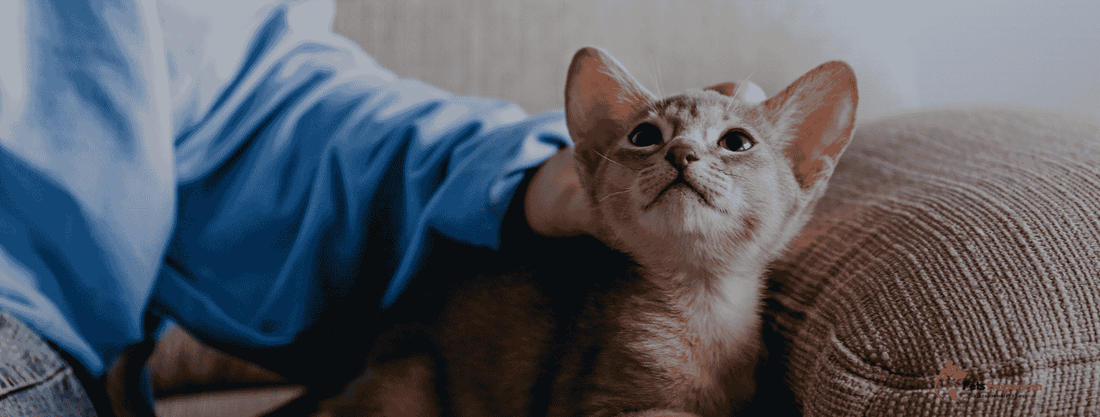Bringing a new kitten home is an exciting experience, but it also comes with a serious responsibility: ensuring your furry friend receives the proper nutrition. Just like human babies, kittens require a specialized diet to support their rapid growth, immune system, and overall development. At Petsemporium, we understand how overwhelming it can be for first-time cat owners to navigate the world of pet nutrition. That's why we have created this comprehensive guide to help you make informed choices about your kitten’s diet. From proteins to fatty acids, we will break down the must-have nutrients that keep your kitten healthy, happy, and thriving.
Importance of Choosing Essential Nutrients for Kittens
Selecting the proper essential nutrients for your pet is vital for their development, growth and overall health. During the early stages of growth, kittens require a balanced diet based on vitamins, minerals, proteins and fatty acids. Each one of them supports rapid body development and makes the immune system stronger.
Proper nutrition also helps in strong bone formation. It contributes to excellent brain development and healthy coat or skin. Imbalance or deficiency can lead to significant health issues. Taurine is an essential amino acid. It is important for eye and heart health for kittens.
Providing a diet specifically ensures they receive the right amount of nutrients in the proper proportions. Making wise nutritional choices lays the foundation for a healthy, active, and long life.
Signs Your Kitten May Have a Nutrient Deficiency
For a pet owner, it is a state of worry if their kitten is not thriving. Nutrient deficiency can appear in different obvious ways. Some common signs include:
-
Low energy levels
-
Rough or dull coat
-
Poor growth
-
Frequent Infections
-
Diarrhea
-
Weight loss
-
Loss of appetite
-
Delays in development
A healthy kitten always looks fun, alert, playful and gaining weight. If they are constantly looking unwell and are not meeting the required weight goals, then it is a sign of a significant lack of essential vitamins, minerals, or proteins. Consult a vet specialist at an early stage to plan a proper diet routine. Early intervention is key to giving your kitten a strong, healthy start in life.
Top 6 Essential Nutrients for Kittens You Should Know
First-time pet owners need to understand which essential nutrients work perfectly for a cat's body. The top 6 essential nutrients to include in their diet routine are:
-
Proteins
-
Fats
-
Vitamins
-
Minerals
-
Taurine
-
Water
Let's explain each nutrient in detail below, along with its benefits:
Protein
Kittens require protein to develop muscle and repair tissue. Their bodies grow very quickly, which means they require good-quality protein sources. These sources help to gain strength, energy, and immunity. Having 50-70 percent protein in the diet also keeps the skin and fur healthy. To achieve maximum benefits, the best type of food to find is one that lists meat, fish or poultry as the first ingredient of your kitten food.
Fats
Omega-3 and omega-6 fatty acids are healthy fats that are helpful to boost brain energy, development, and a shiny coat. These pets consume fat as their major source of energy. These nutrients also support the eyes and the immune system. Fish oil or chicken fat in foods are the sources of appropriate proportions of fatty acids that growing pets require.
Vitamins
Vitamins such as A, D, E, and B-complex are important in the processes of vision, bones, metabolism, and the immune system. To cite an example, vitamin A can benefit the eyesight, and B vitamins can contribute to making energy. These vitamins, when mixed, make a very balanced total food. This will help the overall growth and development in these critical first few months.
Minerals
Bone and teeth, enhancing calcium and phosphorus, are required. Even the other minerals such as magnesium, potassium and iron maintain muscle, hydration and oxygen transport. To prevent developmental issues, kittens should get them in the proper proportions. A quality kitten diet provides a healthy and strong foundation owing to an adequate balance of minerals.
Taurine
Taurine is an amino acid that kittens cannot produce in sufficient amounts on their own. It’s vital for heart function, vision, and reproductive health. A deficiency can lead to blindness or heart disease. Commercial kitten foods include taurine, ensuring your pet receives this critical nutrient daily for lifelong health and well-being.
Water
Water may seem basic, but it’s an essential nutrient. It supports digestion, nutrient absorption, temperature regulation, and waste elimination. Kittens can be prone to dehydration, especially if they eat mostly dry food. Always provide fresh, clean water and consider including wet food in their diet to help maintain proper hydration levels.
Kitten Treats with Essential Nutrients for Healthy Growth
Giving your kitten the right treats can make a big difference in their development. Webbox Tasty Sticks are formulated with 95% animal derivatives, including 75% meat. It contains crude protein of about 33.5%, fat 20%, and other essential minerals. It can be used only by kittens aged more than 3 months.
Webbox Naturals Sticks are sticks that are friendly to kittens with 75 percent of meat and 0.1 percent of cat grass to help digestion. WHISKAS dual-textured milk treats also fit well. They are high in calcium for tooth and bone development. Such kitten snacks are rich in proteins, calcium, minerals, and milk-based nutrients. All these are vital to the muscle growth of kittens, as well as the strengthening of their bones and teeth.
Tips to Introduce Essential Nutrients in Your Kitten’s Diet
1. Choose High-Quality Kitten Food
Always choose commercially made kitten food that is labelled as AAFCO or regional authority complete and balanced. These are prepared to give your growing kitten all the trace elements required by it, such as proteins, fats, vitamins and minerals.
2. Incorporate Wet & Dry Food
A mixture of wet and dry food will guarantee support for hydration and dental health. Wet food is easy to eat and contains moisture. Dry food supports teeth maintenance and serves as a crunch that these pets like to chew on during teething.
3. Add Protein-Rich Foods
Proteins found in animal foods (chicken, turkey, and fish) play an essential role in the growth and general development of muscles. These should be included in the primary ingredients in the food to cater to the high energy and growth needs.
4. Include Healthy Fats
Fat is essential to energy, brain development and a shiny coat. Choose foods that come with omega-3 and omega-6 fatty acids, including DHA and EPA, derived mainly from fish oils or exceptional kitten food.
5. Supplement Wisely
Avoid feeding them supplements all the time. This can lead to toxicity. Look for the supplements that are a mix of vitamins or minerals. You can also pick some homemade diets according to your pet’s dietary preferences.
6. Fresh Water Always
Make sure that there is clean, fresh water. Water helps in digestion, absorption of nutrients, and kidney activity. Does your kitten love running water? In such a case, a pet water fountain will be the right fit to remind your cat to drink water regularly.
7. Regular Vet Checks
Don’t forget to go for regular vet check-ups. During regular veterinary check-ups, the specialist tracks their development and monitors any deficiencies early enough. If your vet is suspicious of malnutrition and imbalances, they will suggest diet plans or tests.
Conclusion
Proper nutrition is the foundation of a healthy, energetic, and long-lived cat. As a first-time cat owner, focusing on your kitten's nutrient needs ensures they develop into a firm, happy companion. Whether it's protein for growth, fats for energy, or taurine for heart health, every nutrient plays a vital role. At Petsemporium, we offer a curated range of premium kitten foods, treats, and supplements to support your pet's journey from day one. Your kitten deserves the best. Start with the proper nutrition today.
Frequently Asked Questions
1. Can I feed my kitten adult cat food?
No, adult cat food lacks the nutrient density required for a growing kitten. Always choose food specifically labelled for them.
2. How often should I feed my kitten?
Kittens under 6 months should be fed 3–4 times a day. After that, twice daily is sufficient.
3. Are raw diets safe for kittens?
Raw diets can pose risks of bacterial contamination and nutritional imbalances. Always consult a vet before introducing raw food.
4. What treats are safe for kittens?
Choose kitten-formulated treats with limited ingredients and no artificial additives. Avoid treats high in sugar or salt.

